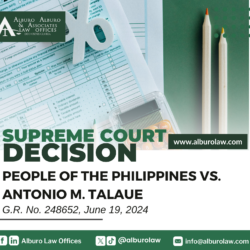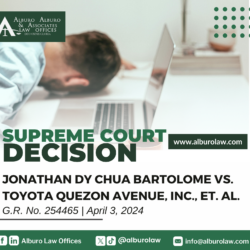The Supreme Court decides: A mayor does not have the positive duty to remit the GSIS premium contributions of all employees within his political subdivision.
In the case of People of the Philippines vs. Antonio M. Talaue, G.R. No. 248652, June 19, 2024, the Supreme Court held that a mayor does not have the positive duty to remit the GSIS premium contributions of all employees within his political subdivision.
The Local Government Code of 1991 refers to municipal mayors as “chief executives” and not “heads of offices” as contemplated under Section 52(g) of RA No. 8291. Moreover, nowhere in the Local Government Code of 1991 does it include the remittance of GSIS premiums as part of the duties of a mayor.












